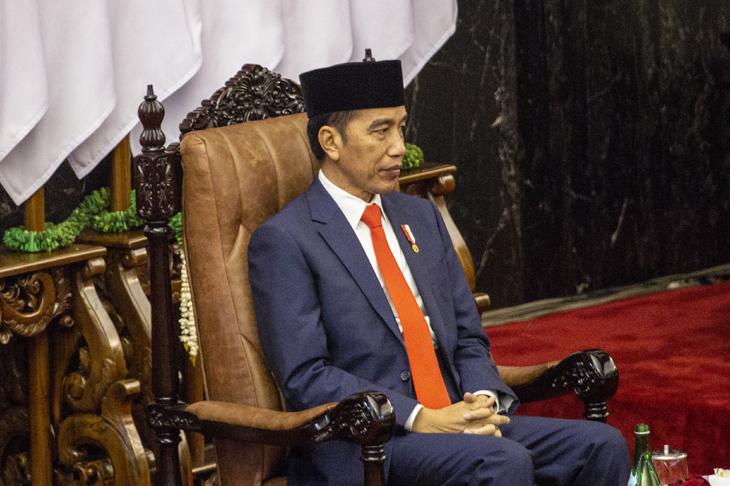I am catching up on writing my award-winning treatise on practical politics. Here are three general principles about politics on which I have been musing. First, there is no doubt about the governing classes. They have a unique way of staying in power and intimidating the rest of us. One of the ways they do that is to throw words around to obfuscate and confuse us and to give the impression that they have everything under control when it is plain that they do not. Over time, they develop and launch entire expressions and sentences that are meant to justify failure and incompetence and, fools that we are, we start to believe them, so that the next time they mention one of their magic phrases, we instantly think there is no problem or scandal, when there clearly is. This subterfuge is one more step in the never-ending attempt to restrict us as individuals and to promote the false god that groups, power centres and elites are always right. Thus, the current expression in vogue by the elites is that they take their responsibilities ‘very seriously’, the implication being that because they do, nothing could possibly go wrong and if it did, it has been rectified and is not their fault. But the scandal remains, the abuse is still there, the injustice has not been rectified, no one has been punished, and all because those who should have been behaving better have been allowed to take refuge behind the bromide that they take their responsibilities very seriously. Two groups took their responsibilities very seriously on the one day last week. The Department of Human Services in Victoria was rebuffing a scandal under which facilities were said to be so bad that the staff had to use a wheelie bin as an office desk. But the department took it seriously, they said, so it was alright. Then, the Australian Taxation Office announced that it took whistle-blowing ‘very seriously and we encourage disclosures’. They also have a vivid sense of humour. Then the minister for fisheries in NSW delivered himself of the profound observation that he took fishing very seriously. Get away with you! To stop us being conned by this new sleight of hand, I recommend that you follow my practice whenever I hear a public servant or a politician announcing that he takes very seriously something he has just monumentally stuffed up; write to him and say: ‘You take it very seriously? Well, resign!’
Secondly, I was thrilled that there might have been an improvement in the standards of behaviour by those in public office, judging by some remarks made last week by the Indonesian president at the swearing in of his newly-appointed cabinet. He said that his ministers should steer well clear of ‘vision’ and it sounded very much like an order. As you know, I have been pointing out what a danger it is when politicians start talking about the vision they have for their own country and what a greater danger it is when they start to implement it. Visions are by definition delusional, as they are diversions from reality, thoroughly impractical, fiendishly expensive and far and away from the steady plodding and minimal achievement that is the proper role of honest government that people want. As such, a vision in politics is only one step behind an initiative and one step ahead of a reform and the three of them make up the unholy trinity of bad government. Anyway, I was thrilled to hear that President Jokowi had turned his government into a vision-free zone that would do more good for Indonesia than all the foreign aid we could send them. Well, it is all true, up to a point. The good president certainly told his ministers he would have no vision thank you, but he made it clear that the vision he was outlawing was not vision in general, but from his ministers; there would still be scope for pure vision from the president himself. Still, in banning at least some vision, he is on the right track and at least it is a good start.
The third principle is that people in politics now conduct proxy wars armed with proxy words. They won’t look you straight in the face and speak directly for or against any policy or proposition. They do it in a snide way, literally talking about something entirely different but still, nevertheless, aiming at their true target. Take the quite unhealthy interest the ALP takes in whether or not Scott Morrison suggested that the pastor at his local church should be invited to the White House dinner tendered for the PM. Why would a major political party take up this issue which must surely be trifling and largely personal and private? The reason the ALP is pursuing it is not the importance of the US alliance, or any other legitimate public issue or even that the pastor’s father was mentioned in the royal commission into children, although not as a perpetrator. The reason is that the ALP, in its new, dreamy left, secular disposition hates religion and will not miss any opportunity to ridicule or denigrate it — or Morrison for being an active Christian. The guest list is therefore a ruse, a backdoor, proxy way to diminish any institution that stands in its way, this time the church. It is the same with climate change and how besotted about it the Greens and the ALP have become. The goal of that proxy war is to stop the industrial development and human progress that comes with the open competitive, free-market economy that frees people from economic bondage. Likewise, the combination of Christianity, Morrison, Trump and Hillsong was too good to ignore. Better to use it to take religion down another peg, which was the real objective of this silly issue. Anyway, is the pastor responsible for the sins of his father. How so?
Got something to add? Join the discussion and comment below.
Get 10 issues for just $10
Subscribe to The Spectator Australia today for the next 10 magazine issues, plus full online access, for just $10.
You might disagree with half of it, but you’ll enjoy reading all of it. Try your first month for free, then just $2 a week for the remainder of your first year.















Comments
Don't miss out
Join the conversation with other Spectator Australia readers. Subscribe to leave a comment.
SUBSCRIBEAlready a subscriber? Log in